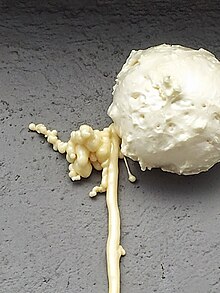Comprehending the Benefits of Using Spray Foam for Insulation Projects
Comprehending the Benefits of Using Spray Foam for Insulation Projects
Blog Article
Spray Foam: The Ultimate Remedy for Air Sealing and Insulation
Spray foam insulation has emerged as a leading remedy for efficient air securing and thermal insulation, providing an unique mix of residential or commercial properties that set it apart from traditional techniques. Recognizing the full extent of its advantages, installment procedures, and comparisons with various other insulation kinds is essential for making informed decisions.
What Is Spray Foam?
Spray foam is a functional insulation material that incorporates the principles of air sealing and thermal resistance to enhance power efficiency in buildings. Composed primarily of polyurethane or various other comparable compounds, spray foam is applied as a fluid that expands upon contact with surface areas, developing a strong, constant layer of insulation. This distinct residential property enables it to fill voids, cracks, and spaces that typical insulation materials might overlook, offering a premium air seal.
There are two main kinds of spray foam: open-cell and closed-cell. Open-cell spray foam is lighter and extra flexible, offering superb audio absorption and a lower R-value per inch - Spray Foam. In contrast, closed-cell spray foam is denser, supplying a greater R-value, wetness resistance, and included structural stability to building components
The application process typically includes specific tools, making sure a seamless application that adheres to different substrates, including metal, concrete, and timber. This versatility makes spray foam suitable for both brand-new constructions and retrofitting existing frameworks. Its capability to produce an impermeable barrier substantially contributes to reducing energy intake and boosting interior air top quality, thus making it a recommended option among homeowners and builders alike.
Benefits of Spray Foam Insulation
Among one of the most substantial advantages of spray foam insulation is its exceptional ability to develop a continual air obstacle, which successfully decreases energy loss. Unlike standard insulation products, spray foam broadens to fill up spaces and cracks, making sure that air leakage is substantially reduced. This particular not just enhances power efficiency but also causes lower utility bills in time.
Furthermore, spray foam insulation gives superior thermal resistance, contributing to a more stable interior environment. Its high R-value per inch enables for reliable insulation in constrained rooms, making it perfect for attics, wall surfaces, and crawl spaces. Furthermore, the moisture-resistant residential properties of spray foam assistance protect against mold and mold development, advertising much healthier living conditions.
An additional critical advantage of spray foam insulation is its sound-dampening top qualities (Spray Foam). It successfully reduces noise transmission in between rooms, producing a quieter and much more comfy home atmosphere. The durability of spray foam additionally stands out, as it does not droop or settle gradually, keeping its performance throughout its life expectancy
How Spray Foam Works
Comprehending how spray foam insulation works is necessary for appreciating its efficiency in air sealing and thermal resistance. Spray foam insulation contains 2 primary components: isocyanate and polyol material. When these components are blended, they undertake a chemical reaction that causes the material to broaden quickly, developing a thick foam that fills up spaces, cracks, and dental caries.
As the foam broadens, it Check Out Your URL sticks to surfaces, forming an airtight seal that dramatically decreases air seepage. This particular makes spray foam insulation extremely effective at avoiding drafts and dampness penetration, which can cause energy loss and damages over time. In addition, the closed-cell variant of spray foam provides remarkable thermal resistance as a result of its rigid framework, efficiently decreasing warm transfer.
The one-of-a-kind homes of spray foam enable it to satisfy uneven surfaces, making sure detailed protection and a smooth barrier. Consequently, spray foam insulation not just enhances energy efficiency but additionally adds to enhanced interior air quality by lowering the buildup of pollutants and irritants. Inevitably, recognizing the auto mechanics behind spray foam underscores its duty as a premium choice for insulation and air securing in both household and business applications.
Installment Refine Introduction

Before installation, the room should be properly cleaned and prepped, guaranteeing that surfaces are complimentary from particles, dust, and moisture. This step is essential due to the fact that contaminants can endanger bond and total efficiency. Once the location is prepared, the application involves blending the two elements of the spray foam, which expands upon call and fills up spaces properly.
Educated specialists need to carry out the setup, utilizing specific devices to make certain consistent protection and optimal thickness. Safety preventative measures, consisting of wearing protective equipment and guaranteeing correct air flow, are essential throughout this procedure. After application, the foam usually remedies swiftly, creating a solid barrier that boosts power efficiency.
Comparing Spray Foam to Conventional Insulation
When reviewing insulation options, spray foam insulation stands apart in contrast to traditional materials such as fiberglass and cellulose. Among the main advantages of spray foam is its exceptional air securing capabilities. Unlike fiberglass and cellulose, which can allow air infiltration, spray foam broadens upon application, filling spaces and gaps to develop a closed seal. This results in boosted power effectiveness, as less heated or cooled air gets away the home, causing lower utility expenses.
In addition, spray foam gives a greater R-value per inch than typical insulation kinds, providing even more effective thermal resistance in a thinner profile. This particular is specifically beneficial precede with minimal cavity deepness. Furthermore, spray foam is immune to moisture and mold and mildew development, which can be a substantial problem with cellulose and fiberglass, particularly in humid environments.
Nonetheless, spray foam insulation generally brings a greater in advance price than its typical equivalents. Home owners should weigh this initial investment versus long-term energy savings and more information efficiency advantages. Ultimately, get redirected here while both insulation kinds serve their function, spray foam emerges as an advanced option for modern-day insulation needs, specifically in terms of air securing and thermal performance.

Conclusion
In summary, spray foam insulation represents a highly reliable option for attaining optimum air sealing and thermal resistance. Its distinct homes, consisting of moisture resistance and audio dampening, make it ideal for different applications in both new constructions and retrofitting projects (Spray Foam). Although the preliminary prices might be greater compared to traditional insulation materials, the lasting benefits, such as significant energy cost savings and boosted indoor air top quality, warrant the investment and underscore its value in modern-day building methods.
Spray foam insulation has actually emerged as a leading option for reliable air securing and thermal insulation, offering an unique combination of buildings that set it apart from conventional approaches.Spray foam is a versatile insulation material that integrates the principles of air securing and thermal resistance to boost power performance in structures.When assessing insulation choices, spray foam insulation stands out in contrast to typical materials such as fiberglass and cellulose. Eventually, while both insulation types offer their function, spray foam arises as an extra innovative solution for contemporary insulation requirements, particularly in terms of air sealing and thermal effectiveness.
In summary, spray foam insulation represents a very efficient service for attaining ideal air securing and thermal resistance.
Report this page